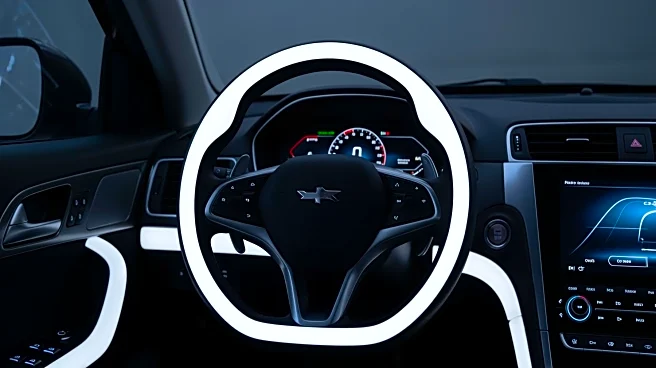What's Happening?
A family in Utah has embraced electric vehicles, particularly Tesla models, to enhance their mobility and lifestyle. Among them, a family member with advanced Parkinson's disease is utilizing Tesla's Full
Self-Driving (FSD) Supervised V14 technology to maintain his ability to drive. This technology has become crucial for him, as his condition would otherwise prevent him from driving. The family has a history of early adoption of electric vehicles, starting with Nissan Leafs and progressing to various Tesla models, including the Model S, Model X, and Model Y. The use of FSD technology is particularly significant for the family member with Parkinson's, as it allows him to continue driving despite his health challenges.
Why It's Important?
The adoption of Tesla's Full Self-Driving technology by individuals with mobility challenges highlights the potential of autonomous driving systems to improve quality of life for those with disabilities. This development underscores the importance of technological advancements in the automotive industry, particularly in enhancing accessibility and independence for individuals with health conditions. The broader implication is a potential increase in demand for vehicles equipped with advanced driver-assistance systems, which could drive innovation and competition in the electric vehicle market. Additionally, the story reflects the growing penetration of electric vehicles in regions like Utah, where Tesla models are becoming increasingly common.
What's Next?
As Tesla continues to develop and refine its Full Self-Driving technology, it may lead to further enhancements in autonomous driving capabilities, potentially expanding its use among individuals with various disabilities. The ongoing evolution of this technology could prompt regulatory discussions around safety standards and accessibility features in autonomous vehicles. Moreover, the end of government subsidies for electric vehicles, as mentioned in the context, may impact future sales and adoption rates, influencing market dynamics and consumer choices.
Beyond the Headlines
The integration of Full Self-Driving technology in everyday life raises ethical and legal questions about the responsibility and safety of autonomous vehicles. As more individuals rely on these systems, there may be increased scrutiny on the reliability and decision-making processes of AI-driven technologies. Long-term, this could lead to shifts in public policy and insurance frameworks, as well as cultural changes in how society views mobility and independence for those with disabilities.









